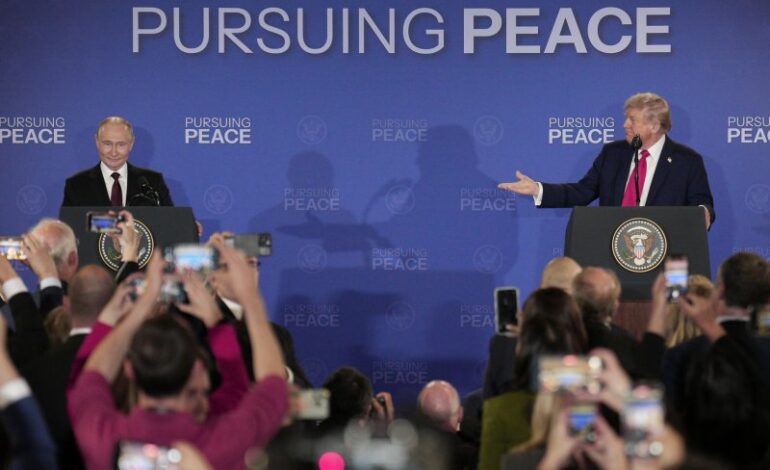Zelensky and Trump to Discuss Peace as U.S. Role Shifts

Ukrainian President Volodymyr Zelensky will meet with U.S. President Donald Trump at the White House on August 21, 2023, to discuss efforts to end the ongoing conflict in Ukraine. This meeting comes after Trump and Russian President Vladimir Putin failed to reach a cease-fire agreement during a lengthy discussion in Anchorage, Alaska. The situation marks a significant shift in the U.S. approach to the war that began with Russia’s invasion of Ukraine over three years ago.
During their three-and-a-half-hour meeting on August 18, Trump and Putin focused on security issues and the need for a lasting resolution to the conflict. Following the meeting, Trump expressed optimism about moving towards a peace agreement rather than a temporary cease-fire, which he suggested often fails to hold. In a post on Truth Social, Trump emphasized the necessity of a comprehensive peace deal, stating, “If all works out, we will then schedule a meeting with President Putin. Potentially, millions of people’s lives will be saved.”
Zelensky, in a separate statement on X, expressed gratitude for the invitation and reiterated the importance of European involvement in the peace process. He highlighted the urgency of addressing the ongoing violence, stating, “Killings must stop as soon as possible, the fire must cease both on the battlefield and in the sky, as well as against our port infrastructure.”
The Ukrainian president also called for the return of prisoners of war and the release of civilians abducted during the conflict. He underscored the need for continued pressure on Russia to ensure compliance with any agreements made. “We emphasize that key issues can be discussed at the level of leaders, and a trilateral format is suitable for this,” he said, referring to potential discussions involving both the United States and Russia.
The diplomatic landscape surrounding the conflict remains tense. European leaders have stressed the necessity for Ukraine to receive “ironclad security guarantees,” asserting that there should be no limitations on Ukraine’s military capabilities or cooperation with third nations. In a statement, European Commission President Ursula von der Leyen and other leaders reinforced the message that Ukraine must be included in any discussions regarding its future and territorial integrity.
Despite the diplomatic efforts, fighting continues unabated in eastern Ukraine. Reports indicate that both sides are actively engaging with drone strikes and military operations. The Ukrainian military announced that Russian forces had been repelled from several settlements near Pokrovsk, while Russia claimed to have intercepted multiple Ukrainian drones.
Reactions to the summit in Alaska have been mixed, with some Ukrainian officials expressing disappointment at the lack of concrete outcomes. Oleksiy Goncharenko, a member of Ukraine’s parliament, criticized the summit as “sickening” and ineffective, suggesting that it has merely provided Russia with additional time to prepare for further aggression.
In contrast, Hungary’s Prime Minister Viktor Orban, a known ally of Putin, praised the summit, stating that it signified a new era of cooperation between the two nuclear powers. He remarked, “The world is a safer place today after the summit,” suggesting a potential easing of global tensions.
As preparations for the upcoming meeting between Zelensky and Trump continue, the international community watches closely. Both leaders face the daunting task of navigating a complex geopolitical landscape, with the hope that their discussions may lead to an end to the violence that has devastated Ukraine and its people.






